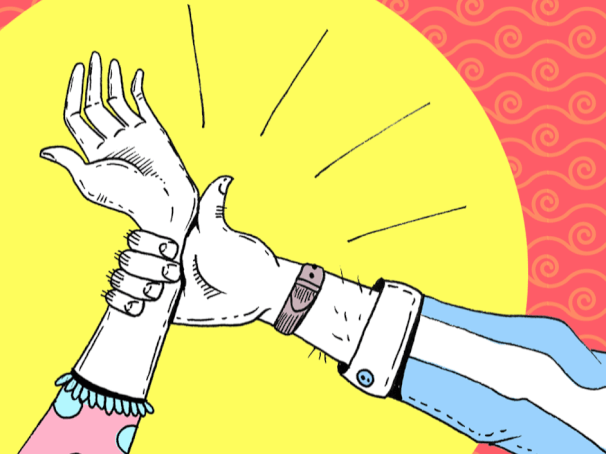Arm pain and anxiety can be a vicious cycle. When you’re anxious, your muscles tend to tense up, which can lead to arm pain. And when you have arm pain, it’s difficult to relax, which only worsens your anxiety. In this blog post, we’ll explore the relationship between arm pain and anxiety, and discuss some steps that you can take to break the cycle.
Contents
Defining Anxiety
Anxiety is a normal emotion that we all experience from time to time. It’s what we feel when we’re faced with a stressful or dangerous situation. Our body’s “fight-or-flight” response kicks in, and we prepare to either face the threat or run away from it.
However, for some people, anxiety can become so intense that it interferes with their daily lives. This is known as an anxiety disorder. Anxiety disorders are the most common type of mental illness across the world. This condition can cause a variety of physical and mental symptoms, including arm pain.
Relation Between Arm Pain And Anxiety

There are a number of ways in which arm pain and anxiety can be related.
- For example, people with anxiety disorders may be more likely to experience muscle tension and pain. This is because when we’re anxious, our muscles tend to tense up as part of the body’s “fight-or-flight” response. This response leads to discomfort and pain.
- In addition, people with anxiety disorders may be more likely to obsess over their bodily sensations and interpret them as signs of danger. This can lead to a condition called somatization disorder, in which physical symptoms are caused or exacerbated by psychological factors. People with somatization disorder may be more likely to experience arm pain as a result of their anxiety.
- Anxiety attacks can also cause arm pain. During an anxiety attack, our heart rate, and blood pressure increase, and we may breathe more quickly. This can lead to a tightening of the chest muscles, which can in turn cause pain in the arms.
- Finally, anxiety can also cause or worsen existing health conditions that cause arm pain. For example, anxiety can contribute to the development of conditions like carpal tunnel syndrome and tennis elbow. And if you already have one of these conditions, anxiety can make your symptoms worse.
Other Causes of Arm Pain

There are many potential causes of both localized and generalized arm pain. Some common causes include:
- Injuries: Arm pain can be caused by a wide variety of injuries, including fractures, sprains, and strains.
- Overuse: Repeating the same motions over and over again can lead to conditions like tendonitis or bursitis.
- Nerve problems: Conditions like carpal tunnel syndrome or pinched nerves can cause arm pain.
- Arthritis or other inflammatory conditions: Inflammatory conditions like arthritis can cause pain, swelling, and stiffness in the arms.
- Cancer: Cancer can cause pain in the arms as a result of the tumor pressing on nerves or bones.
- Infections: Arm pain can sometimes be caused by infections, such as cellulitis or osteomyelitis.
- Blood clots: Blood clots can cause arm pain if they block blood flow to the arm.
- Growth spurts: Arm pain is common in teenagers during growth spurts.
- Muscle tension or spasms: Muscle tension or spasms can cause pain in the arms.
- Poor posture: Slouching or sitting in an awkward position can lead to arm pain.
As you can see, there are many potential causes of arm pain. If you’re experiencing arm pain, it’s important to see a doctor to rule out any serious underlying conditions.
Treatment Options
Despite the side effects, it is important to know that both arm pain as well as anxiety are manageable conditions with easy and effective treatment options.
For Arm Pain
If you’re experiencing arm pain, the first step is to see a doctor to rule out any underlying medical conditions. Once any potential medical causes have been ruled out, there are a few things that you can do to help relieve your arm pain. These include:
- Exercising regularly: This can help to stretch and strengthen the muscles in your arms. Some simple exercises you can do include arm circles and triceps stretches.
- Using heat or ice: Heat can help to relax muscles, while ice can help to reduce inflammation. These can help to reduce pain and inflammation.
- Taking over-the-counter pain medication: Pain medication can help to relieve pain. These include pain relievers like ibuprofen or acetaminophen. They help in easing arm pain by reducing inflammation.
- Using relaxation techniques: Relaxation techniques like yoga, meditation, or deep breathing can help to reduce stress and muscle tension, which can in turn help to reduce arm pain.
- Undertake physiotherapy: If you have a condition like carpal tunnel syndrome or tendonitis, physiotherapy can help to stretch and strengthen the affected muscles and tendons.
There are several things that you can do to treat arm pain that is caused by anxiety. These activities can help to release the tension in your muscles and improve your overall sense of well-being.
For Anxiety
If you’re experiencing anxiety, there are a number of things that you can do to help ease your symptoms. These include:
- Exercising regularly: Exercise can help to reduce stress and improve your overall sense of well-being.
- Practicing relaxation techniques: Relaxation techniques like yoga, meditation, or deep breathing can help to reduce stress and ease anxiety.
- Journaling: Writing down your thoughts and feelings can help to identify patterns and triggers for your anxiety.
- Getting enough sleep: Getting enough sleep is important for reducing stress and promoting feelings of calmness and relaxation.
- Eating a healthy diet: Eating a healthy diet can help to improve your mood and reduce stress levels.
- Avoiding caffeine: Caffeine can worsen anxiety symptoms, so it’s important to limit or avoid caffeine if you’re struggling with anxiety.
- Seeking professional help: If your anxiety is severe, you may benefit from seeking professional help from a therapist or counselor. They might assign you for therapy, medication, or a combination of both, depending upon the severity of your symptoms.
Some common therapy and medicines include:
Psychotherapy: This is a type of therapy that can help you to understand and manage your anxiety. It works by helping you to identify and change the thoughts and behaviors that contribute to your anxiety.
Cognitive-behavioral therapy: This is a type of therapy that focuses on changing the negative thought patterns that contribute to anxiety. It helps you to learn how to manage and cope with anxiety healthily.
Selective serotonin reuptake inhibitors: These are a type of medication that helps to treat anxiety and depression. They work by increasing levels of serotonin in the brain.
Benzodiazepines: These are a type of medication that treats anxiety and panic disorders. They work by calming the nervous system.
Beta-blockers: These are a type of medication that is used to treat anxiety and performance anxiety. They work by blocking the effects of adrenaline in the body.
No matter what treatment option you choose, it’s important to stick with it and give it time to work. It may take some trial and error to find the right treatment for you, but with perseverance, you will find something that works.
Conclusion
In conclusion, arm pain and anxiety are common problems. However, there are a number of things that you can do to ease your symptoms. If you’re struggling with anxiety, be sure to seek professional help. With the right treatment, you can learn to manage your anxiety and live a healthy, happy life.
For more information, please contact MantraCare. Anxiety is a common mental health condition characterized by persistent feelings of worry, fear, and apprehension. If you have any queries regarding Online Anxiety Counseling experienced therapists at MantraCare can help: Book a trial Anxiety therapy session


